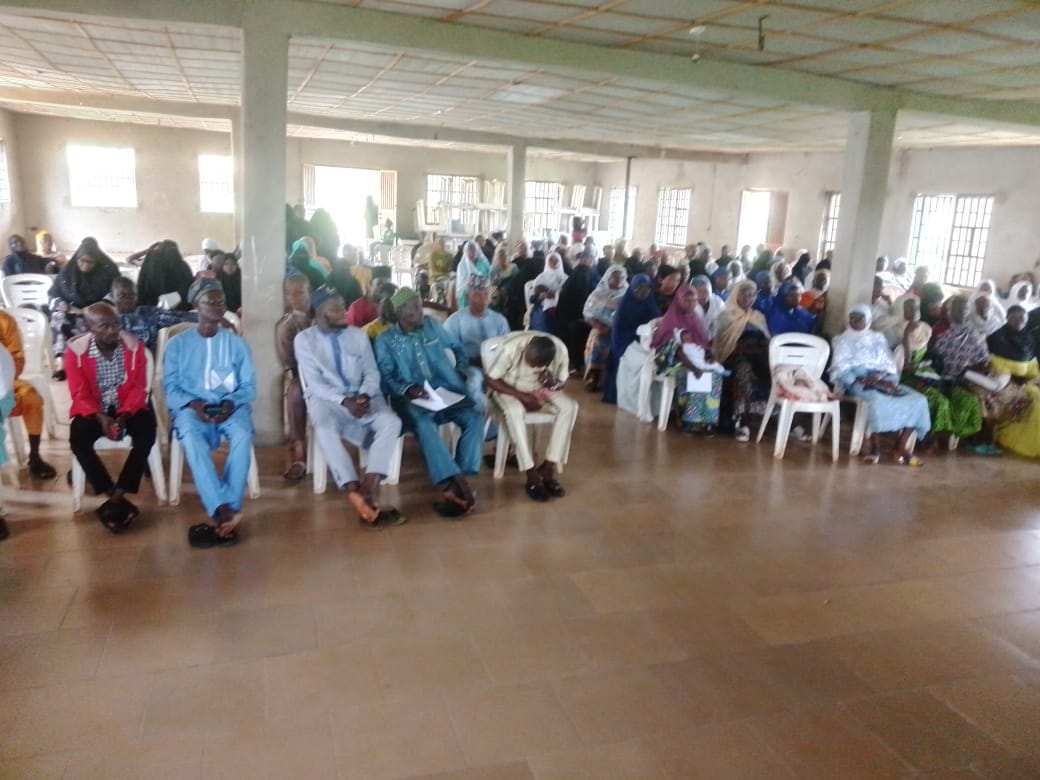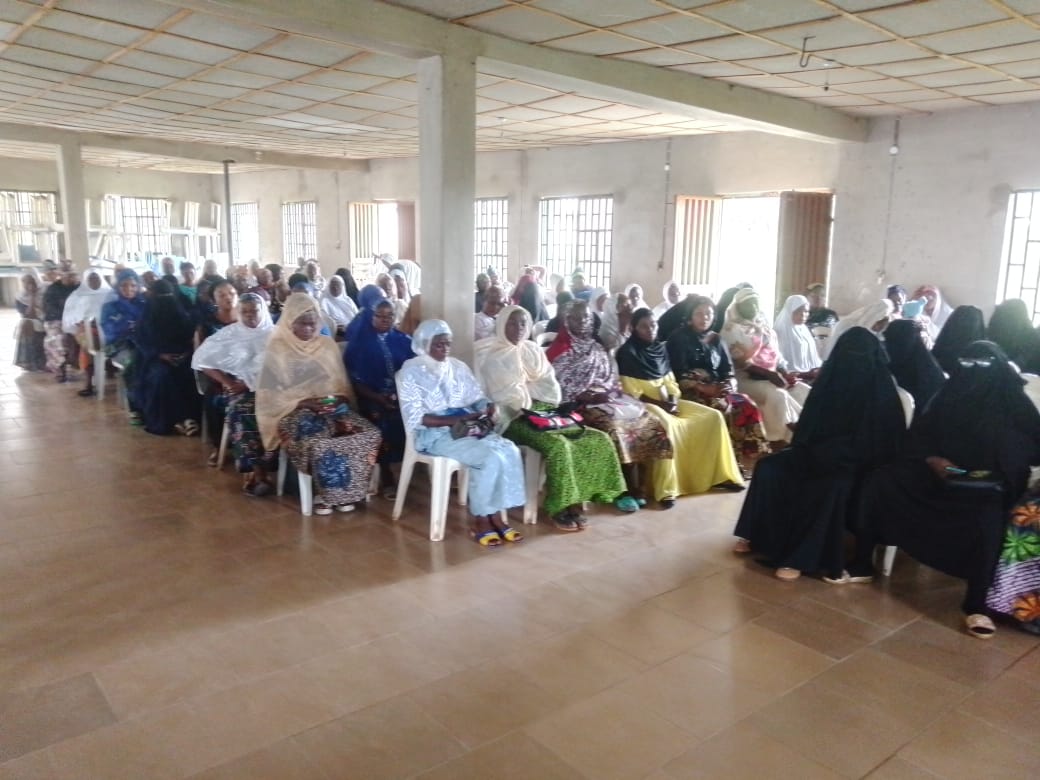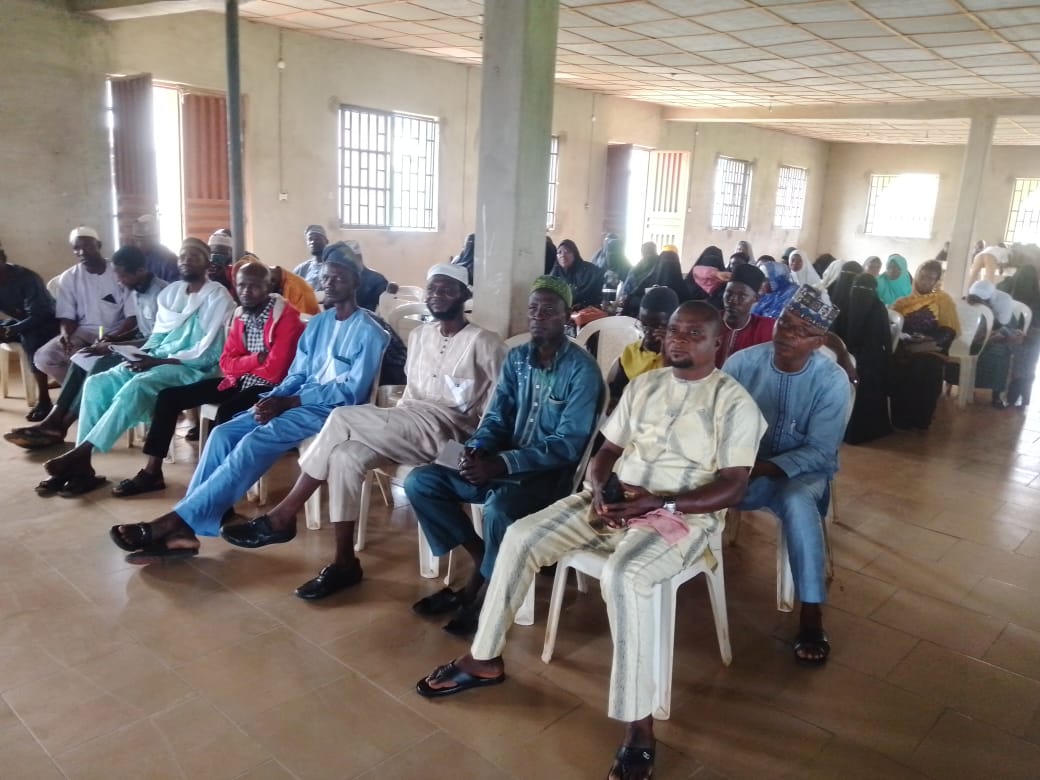TOP TEN MUSLIM UNIVERSITIES IN AFRICA
February 14, 2026ANALYSIS: Why Nigeria GDP is not the best in Africa Despite having the largest market
February 10, 2026AMIS Organises Parents Seminar, Highlights Synergy Between Responsible Parenting, academic achievements
AMIS Organises Parents Seminar, Highlights Synergy Between Responsible Parenting, academic achievements

Association of Model Islamic Schools (AMIS) has organized a parents’ seminar on the synergy between responsible parenting and academic achievements.
The seminar was held on Thursday, June 15, 2023.
While speaking at the seminar, the Executive Coordinator, Foundation for Social and Human Development (FSHD), Dr. Lukman Tunde Fasasi, highlighted the impacts of responsible parenting on children’s academic performances.
Dr. Fasasi, an educationist, and a sociologist, hinted that responsible parenting could promote excellent academic performance. According to him, responsible parenting can have a significant impact on the academic performance of children.
“There are some ways in which responsible parenting can positively influence a child’s educational outcomes,” he said.
Dr. Fasasi urged the parents to establish a supportive and nurturing environment for their children. “Responsible parents strive to create a positive home environment that promotes learning and academic success. They provide emotional support, encouragement, and a safe space for their children to explore their interests and develop their skills,” he stated.
He added that “A bad environment can destroy a child’s potential.”
Speaking further, Dr. Fasasi implored the gathering to set high expectations, stressing that “responsible parents set high but realistic expectations as standards for their children’s academic performance.
“They communicate the importance of education to their children and encourage them to strive for excellence. This can motivate children to work harder towards achieving excellence in their academic pursuits.”
The University don also maintained that providing educational resources and opportunities for children contributes significantly to their academic success.
He said, “Responsible parents ensure that their children have access to the necessary educational resources, such as books, writing and learning materials, and modern learning aids that are based on technology.
“They also seek out opportunities for their children to expand their knowledge and skills, such as enrolling them in extracurricular activities, educational programs, or tutoring if needed. They install educational apps to aid in learning and guide their usage.”
The seasoned educationist also advised parents to establish routines and structures that will benefit their children academically. According to the guest lecturer, responsible parents establish consistent routines and structure, including regular study times and homework schedules.
He stated that “Children are encouraged to participate in household chores but should not take the space of reading their books and doing school home assignments! This helps children to develop good study habits, time management skills, and a sense of discipline, which can positively impact their academic performances.”
Dr. Fasasi maintained that by instilling discipline and emphasizing the importance of completing assignments on time, parents teach their children valuable skills that contribute to their academic success, and realizing their full potential in life.
Another vital point raised while giving his speech was the need for encouragement of love for learning. He noted that responsible parents foster a love for learning “by exposing their children to various educational opportunities. They encourage curiosity, provide access to books, educational materials, and engage in enriching activities.

“By nurturing a genuine interest in learning, parents help their children develop intrinsic motivation, leading to improved academic performance.”
He opined that “this is where the reward for improvement in performance in academics comes in, It should not be left only to the school but should be done by parents for their improving children.”
The sociologist further enjoined parents that for their children to excel academically, the children should be actively engaged. He observed that “responsible parents take active interests in their children’s education by attending parent-teacher meetings, conferences, schools’ open days, and parents’ seminars, staying informed about their academic progress, and communicating regularly with their teachers.”
He maintained that parents’ involvement in their children often shows the children that their education is prioritised, and provides an opportunity for parents to address any challenges or concerns.
Dr. Fasasi emphasised that responsible parents maintain regular communication with teachers. ‘They maintain open lines of communication with their children’s teachers and establish a collaborative relationship with the school. By staying informed about their children’s progress and addressing any concerns promptly, parents can support their children’s educational journey effectively’, he inferred.
He also identified the major differences between a facilitating parent and a conventional parent. He stated that a facilitator provides all support to schools and the students to ensure that they produce positive and excellent learning outcomes, the conventional parents push all activities to the school and enjoy blaming the school always for the delinquency of their child. Such parents believe that the fees paid by them for their children’s education should be enough to get the school to do everything and be blamed for any shortfall.
While encouraging parents to promote problem-solving and critical thinking skills among their children, Dr. Fasasi stated that these skills not only benefit academic performance but also have lifelong applications in various areas of life. He further emphasized that parents should strive to strike a balance between involvement and autonomy.
“While they support and guide their children, they also encourage independence and self-directed learning,” he noted.
Dr. Fasasi warned that parents should allow their children to take ownership of their education, make decisions, and learn from their mistakes. “This is where career path issues come in. There is no link between success in life and a particular chosen career path rather passion and talents have been linked to success.
“Forcing children to take a particular path has been found to weaken their potential and reduce their chances of excelling in the imposed career compared to those who have been given the opportunity of partaking in their choices of career path,” he urged.
He added that this approach helps children develop critical thinking skills and a sense of responsibility for their academic performance.
Another vital approach to responsible parenting mentioned in his lecture was the ability to balance academic focus with other aspects of development.
According to Dr. Fasasi, while academic success is important, responsible parents recognize the need for a balanced approach. He said, “They support their children’s participation in extracurricular activities, hobbies, and social interactions, as these experiences contribute to their overall development and can enhance their academic performance.”
He, therefore, warned the parents against the negative comparison of their children with other children, stating that “responsible parents motivate and do not condemn. They encourage and help children discover their greatness. They awake the sleeping giants in their children. They do not destroy while trying to build. Sometimes they engage experts to help in reshaping the lives of their struggling children.”
He equally highlighted the importance of keeping watch on the activities of children.
The University Don observed that parents are more challenged in these days of globalization.
“There are no longer boundaries to learning wrong values and culture. It’s no longer enough to send children to good schools, it is important to monitor children’s activities and peer groups. It may be disheartening to see what children learn in the so-called big schools, especially boarding schools,” he observed.
He continued, “The Islamic schools are no exception. Some popular bad characters were known to be good students of Quranic education. Social media can be supportive or destructive of the lives of children.”
The sociologist cum educationist equally emphasized the role of mentoring in the academic pursuits of the children, stressing that it helps to build the children’s future. “Responsible parents always strive to set good examples for their children. In most, cases they are mentors to their children. The prophet (PBOH) said the best of you is he who is best for his family.

“Some parents run after the material world at the expense of their children. Career women sometimes suffer double jeopardy of losing their homes and children yet not being the richest. It may not be bad for a woman to work, but it will be worst if her children turn out liabilities to waste the wealth so accumulated. What type of life do we live for our children?” Dr. Fasasi asked.
Parents were warned against taking wrong steps so as not to elevate mediocrity. The guest lecturer at the occasion said responsible parents avoid rewarding mediocrity. “They reward actual performance and celebrate greatness. They do not elevate mediocrity by seeking undue favour for their children. This is where examination malpractice and seeking double promotion for a struggling child come in.
He stated that “Sometimes age is not the issue to determine the class a child should be in. In addition to intelligence, we have emotional and social quotients. Moving a child into a class above his capacity often turns a brilliant intent into an average or below-average student.
“It may later turn out to be like a step forward and many backward, a form of backpedaling. Children are not for competition but to bring us comfort and peace if we are responsive and responsible,” he told the gathering.
He concluded that every child is unique, and parenting approaches may need to be tailored to suit individual needs. He stated that so many factors determine the personality of individuals and their abilities such as individual abilities, learning styles, family traits (inherited traits), etc.
“Additionally, external factors like school quality, peer influence, and personal circumstances can also impact academic performance. Responsible parenting is just one aspect of a multifaceted equation for academic success, but it plays a crucial role in creating a positive and conducive environment for learning and achievement,” he concluded.
In his contribution, Mr. AbdulWaheed Ogundepo who spoke on “Career Path for Students: The Role of Parents and the School”, identified five stakeholders involved in the choice of career by students. According to him, these include Parents, professional counselors, schools, the community, and the students.
On the role expected of schools, the educational expert stated that schools should be able to provide a serene environment where students can learn comfortably.
He opined that schools should not be located where students may be exposed to risks and dangers such as motor parks, noisy areas like markets, etc.
Mr.Ogundepo stated that schools should engage qualified and passionate teachers, charge moderate fees that can sustain payment of good salaries to retain good teachers, avoid being involved in examination malpractice, and resist parents’ influence in the wrong placement of students into classes in the form of skipping classes.
The educational expert added that involvement in examination practices has led to eventual disaster in which the nation now experiences avoidable cases of medical errors by poorly trained doctors and teachers.
Schools were charged to provide, and update, syllabuses, and schemes of work in all subjects and classes, in line with the changes in the educational sector. They should adopt technology to aid in effective teaching.
Mr. Ogundepo also charged the parents to set the criteria for choosing schools where they will enroll their children. He stated that parents should choose schools that will help their children discover their potential and build their knowledge and character.
“Parents should support schools to grow by paying their wards’ school fees on time to avoid the children being sent out of classrooms and provide adequate learning materials to the children,” he said.
Mr.Ogundepo emphasized the need for a balanced and nutritious diet for their children to aid their proper brain development. He advised parents to desist from seeking that their children should skip classes on account of age because the curricula are set to be continuous hence skipping one class will affect the completion of the learning process.
Parents were also advised to avoid the withdrawal of their children for frivolous reasons as it will truncate their learning process.
He warned parents against forcing their children to choose a career path against their natural endowments and capabilities.
He further advised that every child has a unique talent that the school and parents must help to discover and not kill by enforcing a particular career on them. He cited many examples of those doing well in other chosen fields apart from the popular fields the parents would have imposed On them.
The guest speaker, Mr. Ogundepo further identified some of the factors parents must consider in the choice of career for their children to include their religion, the child’s ability, and family background which include the ability of the family to finance the child’s education along the career path preferred.
The career path may be realized by taking some other routes to the same destination. He also listed the child’s maturity and peer group influence as some factors that influence the choice of career path, hence he advised the parents to seek the intervention of professional counselors where and when necessary.
Some of the parents who were invited from about 100 Muslim schools, which are AMIS members, appreciated the organisers for the opportunity given to them to be part of the audience.
The participants advised that such a programme should be organised for the students too, to guide them in choosing their career.
They appealed also that the association should facilitate a more effective means of communicating other programmes to the parents.
Questions were asked to further expatiate on some areas touched by the lecturers such as the difference between a facilitating patent and a conventional parent.
The coordinator, AMIS Ona-ara Local Government, and Proprietor of Annasir Group of Schools, Mr. Sulaiman Adejumo, appreciated those present and promised to look at various suggestions raised.
He announced other future programmes of the group such as youth Camp, children get-togethers, and teachers’ seminars.









